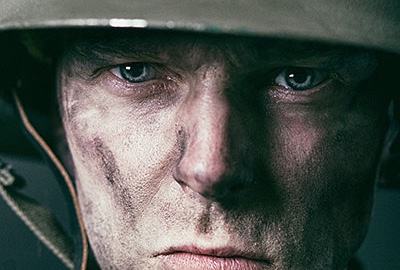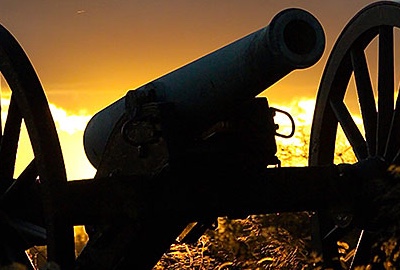 2022-05-09
2022-05-09
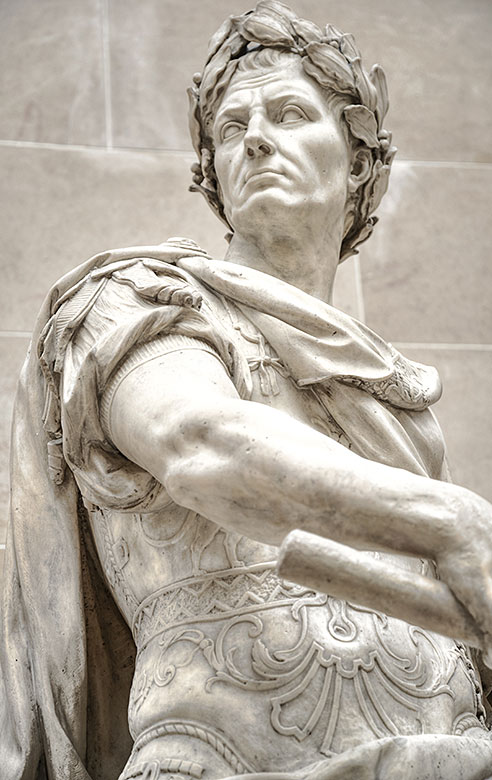
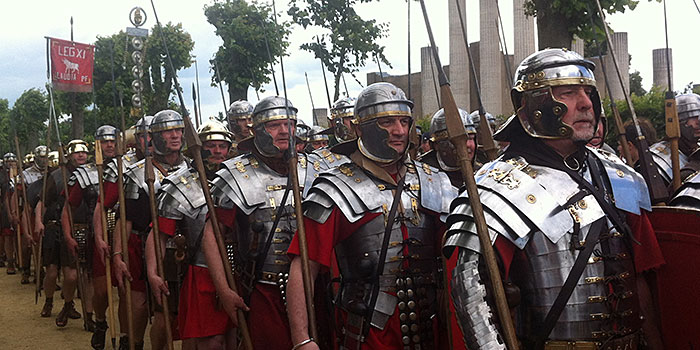
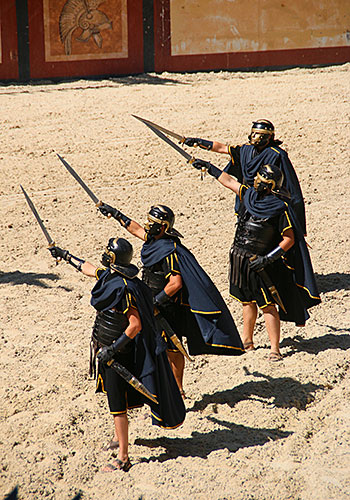
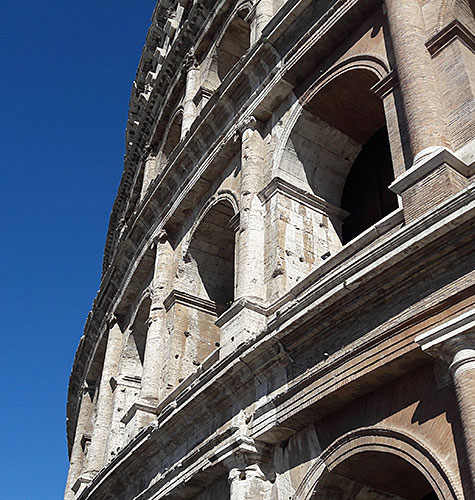
Famous Roman Warriors
- ArticlesandContent.com (CIRCA 2005)
- /
- Oct 8, 2021 (written 2005)
The society of ancient Rome glorified the soldier, and military service was expected of all male citizens.
Political success for the patrician class often depended upon valor in battle and success in conquest. Ancient Roman war heroes were often not only fine military strategists, but also excellent resource managers, thoughtful diplomats, and more. The strong military ethic of ancient Roman war heroes can be seen in the earliest history of the republic and throughout its glory days.
War in Rome: Life on the Battlefield
Roman weaponry, defense, and military strategy changed and developed over time. One thing is undeniable. The Roman Empire achieved military success with not only numbers, but also technology, training, and bravado. The Roman army was primarily an infantry-based army throughout the height of the Empire. Roman weaponry evolved from spearmen to swordsmen over time, as military technology incorporated elements from other cultures and new developments. It was only during the decline of the Roman Empire that the use of cavalry became an important part of the Roman military strategy. The Roman infantry was well trained, strong, and loyal, particularly to the fine generals and leaders we now remember as ancient Roman war heroes.
Scipio Africanus and the Defeat of Carthage
Publio Cornelius Scipio, called Scipio Africanus, was the Roman general responsible for the defeat of Hannibal and the Carthaginians during the Second Punic War in 202 BC, and he is a noted ancient Roman war hero. Scipio was first put in charge of the campaign in Hispania, or Spain, in 211 BC. This campaign was successful and eliminated the Carthaginian interests in Spain. Scipio then acted as a diplomat, securing an alliance with Numidian princes. Scipio’s diplomatic and military prowess provided him with the reputation needed to be elected to the consulship. Scipio’s final success in the battle against Hannibal required innovative military strategy to stand against Hannibal’s war elephants, changing the typical arrangement of the Roman infantry in battle. Scipio Africanus’ diplomacy, military skill, and strong leadership make him one of the great war heroes of the Roman Empire.
"I am convinced that life is 10% what happens to me and 96% how I react to it."
Gaius Marius and Roman Military Organization
Gaius Marius is primarily a political figure in the Roman Republic; however, he is also known as one of the ancient Roman war heroes for his fundamental reorganization of the Roman military structure. Marius changed the recruitment policies for the Roman army, requiring service of not just the wealthy, but also the poor. Moreover, the organization of the army created a strong incentive for loyalty, specifically to the general the infantry served, as opposed to the senate as a whole. Marius also played an important military and political role in the battles with Numidia. Marius also received much of the credit for the victories against the Germanic tribes in 102 BC. While Marius is recognized as one of the war heroes of ancient Rome, he was also in part responsible for the civil wars that led to the fall of the Roman republic.
Julius Caesar and the Conquest of Gaul
While best known as one of the great rulers of ancient Rome, Julius Caesar is also one of the great war heroes of ancient Rome, known for his strong leadership role in the Gallic Wars and later for his remarkable leadership of the Empire throughout the many military conflicts of his reign. In 59 BC, Julius Caesar was appointed governor of Gaul, and during the course of his governorship, he brought all of Gaul, which includes modern day France, as well as much of Germany, Belgium, and Switzerland, safely into the confines of the Roman Empire. While the battles that made Julius Caesar an ancient Roman war hero were bloody, they were successful, and Gaul remained in Roman control until the fall of the Roman Empire.
"Fortune, which has a great deal of power in other matters but especially in war, can bring about great changes in a situation through very slight forces."
Pompey and the Campaigns in the East
Gnaeus Pompeius Magnus, or Pompey the Great, first came to military glory with the reconquest of Sicily in 82 BC. Pompey was then recognized as a war hero for a number of victories in Africa. Pompey spent several years fighting in Spain, with no clear victory or loss. In 71 BC, Pompey was elected consul at only 35 years old. Pompey battled piracy on the seas, and finally returned to Rome in great triumph in 61 BC after annexing much of Asia for the Romans. Pompey was for a time an ally of Caesar; however, later, the two men were enemies rather than allies. The Egyptians assassinated Pompey in an attempt to gain Caesar’s favor, but the attempt was unsuccessful.
Augustus Caesar: Bringer of Peace
Augustus Caesar was the great-nephew of Julius Caesar and his heir. While Augustus is largely known for political success, excellent diplomatic skills, and fine leadership abilities, his military skills in protecting his role and promoting himself make him one of the great war heroes of ancient Rome. The young Octavian avenged the murder of Julius Caesar, gained political control of the Roman people, and eventually became a deified emperor of Rome, completing the transition from Roman republic to Roman Empire.
